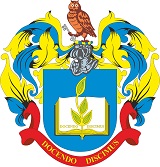Будь ласка, використовуйте цей ідентифікатор, щоб цитувати або посилатися на цей матеріал:
http://46.63.9.20:88/jspui/handle/123456789/672| Назва: | Історико-філософський аспект диференціації в освіті. |
| Інші назви: | ИСТОРИКО-ФИЛОСОФСКИЙ АСПЕКТ ДИФФЕРЕНЦИАЦИИ В ОБРАЗОВАНИИ. Historical-Philosophical Aspect of Differentiation in Education. |
| Автори: | Ілініцька, Н.С. |
| Ключові слова: | диференціації в освіти природовідповідність індивідуалізація дифференциация в образовании природосообразность индивидуализация differentiation in education natural correspondence individualization |
| Дата публікації: | 2017 |
| Видавництво: | Дрогобич, 2017 |
| Бібліографічний опис: | ілініцька Н.С. Історико-філософський аспект диференціації в освіті. Молодь і ринок : щомісяч. наук.-пед. журн. – Дрогобич, 2017. –№ 12 (155) – С. 79–83. |
| Короткий огляд (реферат): | У статті проаналізовано філософський аспект диференціації в освіти де враховується диференційний підхід та розкриття індивідуальності кожної особистості. Питання індивідуальності людини висвітлюється у працях філософів Античності (Аристотеля, Платона, Сократа) де педагогічний процес заснований на принципі природовідповідності, згідно з яким педагог керується факторами природнього розвитку дитини. Філософи епохи Відродження (Я.Коменский, Ж.Руссо, Д.Дідро) продовжували розробку принципу індивідуалізації враховуючи природні відмінності дітей. Представник Німецької класичної школи Г.Гегель виділяє три ступені руху духу до індивідуального суб'єкту. На ідеї природовідповідності виховання особистості заснована концепція українського філософа Г.Сковороди. В статье проанализирован философский аспект дифференциации в образовании где учитывается дифференцированный подход и раскрытие индивидуальности каждой личности. Вопрос индивидуальности человека освещается в трудах философов античности (Аристотеля, Платона, Сократа) где педагогический процесс основан на принципе природосообразности, согласно которому педагог руководствуется факторами естественного развития ребенка. Философы эпохи Возрождения (Я.Коменский, Руссо, Дидро) продолжали разработку принципа индивидуализации, учитывая природные различия детей. Представитель Немецкой классической школы Г.Гегель выделяет три степени движения духа к индивидуальному субъекту. На идее природосообразности воспитания личности основана концепция украинского философа Г.Сковороды. The article analyses the philosophical aspect of the question of differentiation in education, which takes into account the differential approach and disclosure of the individuality of each personality. The question of individuality of a person is covered in the writings of the philosophers of Antiquity (Aristotle, Plato, Socrates) where the pedagogical process is based on the principle of natural correspondence, according to which the teacher is guided by the factors of natural development of the child. The idea that can be found in many philosophical doctrines of this time is the concept according to which it is necessary to show the care of oneself, which is the basis of rational behavior in any form of active life. This concept becomes a strategic step from philosophy-contemplation to philosophy as a way of life. Philosophers of the Renaissance (Y.Komensky, J.Russo, D.Didro) continued to develop the principle of individualization, taking into account the natural differences between children. Y.Komensky urged to build a process of education, imitating nature; J.Russo was absolutely convinced that the desire to go against nature is harmful not only for the body, but also for the spirit; D.Didro's contribution is that he was one of the first to insist on the availability of education and the creation of a free school. The representative of the German classical school G.Gegel distinguishes three stages of the movement of spirit to the individual subject. In the first place, the spirit acts as a naturally determined, unitary entity where individualization is manifested in the limited processes of the internal life of the individual. At the second stage, spirit overcomes its naturalness and singularity, filling itself with social content, which form the objective basis of individual existence. At the third stage of the movement, the spirit is freed from everything outside and returns to itself a true personality. The end result of the movement of the spirit is the free individuality. The concept of the Ukrainian philosopher H.Skovoroda is also based on the idea of natural correspondence to the education of the personality. |
| URI (Уніфікований ідентифікатор ресурсу): | http://46.63.9.20:88/jspui/handle/123456789/672 |
| Розташовується у зібраннях: | Кафедра музикознавства, інструментальної підготовки та методики музичної освіти |
Файли цього матеріалу:
| Файл | Опис | Розмір | Формат | |
|---|---|---|---|---|
| Стаття Ілініцька Н.С. Історико-філософський аспект 2017.docx | стаття | 35,61 kB | Microsoft Word XML | Переглянути/Відкрити |
Усі матеріали в архіві електронних ресурсів захищені авторським правом, всі права збережені.
